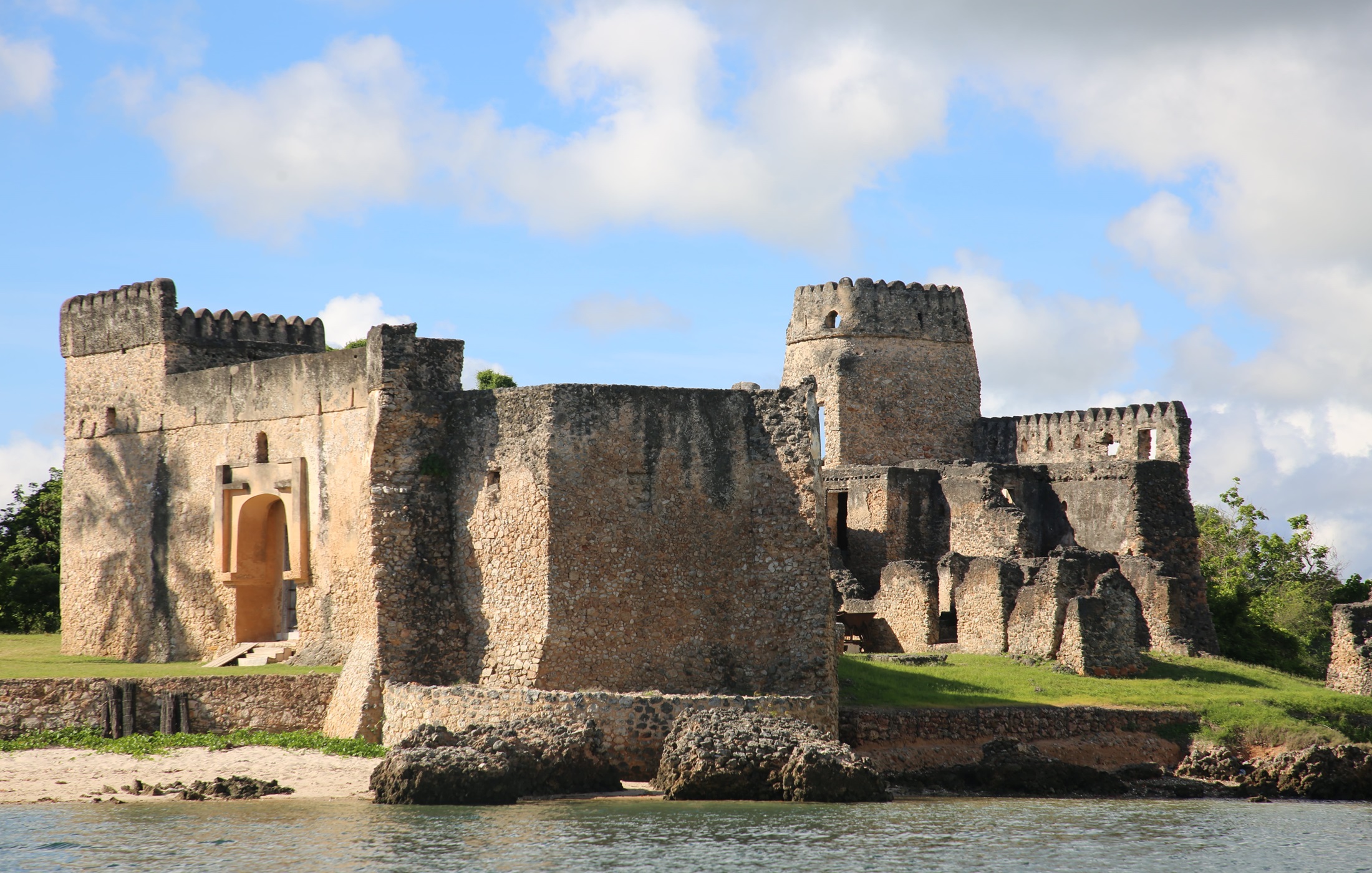In Tanzania’s quiet southern reaches, where the sea breathes against untouched shores and baobabs stand like sentinels of history, lies Kilwa—a place not merely visited, but felt. Here, the past lingers in the salty air, and every grain of sand seems to carry a story whispered from centuries gone by.
A Tapestry of Culture
Kilwa’s roots stretch deep into the 9th century, when Shirazi seafarers arrived from Persia, drawn by the promise of trade winds and treasure. On the island of Kilwa Kisiwani, just a short sail from the mainland, they built a city of coral and prayer, of gold and poetry—a jewel in the crown of the Swahili coast.
Time flowed through its minarets and markets. The call to prayer mingled with the clang of coins—Kilwa’s own, minted in the golden age when dhow sails filled the horizon and Chinese porcelain crossed palms under the shade of mango trees.
Today, Kilwa remains a district of quiet traditions. Homes are woven from earth and thatch, lit by the soft glow of oil lamps. Life moves to the rhythm of the tide, the prayer call, the planting season. The people—predominantly Muslim—carry in their customs the grace of centuries of Islamic influence, of Arab stories passed from grandmother to grandchild.
Harvests of Sea and Soil
The people of Kilwa live by the gifts of the land and the sea. Fishermen glide out at dawn, returning with fish that glisten like silver coins. Women gather seaweed and shells, while farmers coax cassava and maize from the earth.
In the sun-drenched fields, cashew nuts, oranges, and coconuts grow in abundance—some for home, some bound for foreign markets. Charcoal and wood carvings, sculpted by hand, travel north to Dar es Salaam, bearing the soul of Kilwa in every grain and groove.
Echoes of Empires: Places to Wander
Kilwa Kisiwani
A ghost city of coral and arches, where ancient mosques breathe in silence and the grand Husuni Kubwa palace crumbles elegantly under the sun. Here, traders once exchanged gold and ivory for Persian glass and Chinese silk. Even Ibn Battuta, the great traveler, called it one of the most beautiful cities he had ever seen.
Songo Mnara
Kilwa’s twin island, 8 kilometers south—an echo of elegance, with five mosques, a regal palace, and thirty-three coral homes. The sea kisses its shores gently now, but the wind still carries the murmur of sultans.
Masoko Pwani
A hidden crescent of coastline—fringed by palms, kissed by turquoise waves. At dusk, the beach comes alive with the clamor of fish markets, bicycles, and bajajis weaving through soft light and salty laughter.
Kipatimu Caves
Beneath the forest canopy lies a realm of shadows and stone. These limestone caves once held entire communities, sheltering them from tribal wars and German fire. Today, they belong to bats, snakes, and silence—alive in a different way.
Kilwa Kivinje
Once the terminus of southern slave caravans, now a sleepy village with grand tales. Its Swahili streets whisper of wealthy Indian merchants, of Omani traders and German officers—all ghosts now, wrapped in the ivy of old buildings and ocean breeze.
Lindi
Further up the coast, Lindi hums with life. Once under the Sultan’s rule, now a colorful seaside town where dhow harbors, carved doors, and crumbling colonial walls hold the charm of faded glory and unhurried afternoons.
Of Creatures and Currents
Kilwa’s waters are home to more than memory. Dolphins, dugongs, and sea turtles dance among coral reefs, while inland, elephants, hartebeest, and shy bushbucks graze through forests where few footsteps fall. The district is alive—not only with history, but with heartbeat.
Kilwa is not a destination—it is a dream, suspended between centuries. A place where coral tells stories, and the sea knows your name before you’ve even spoken it. Come not just to see, but to feel the rhythm of time—and to listen, as Kilwa softly, endlessly, whispers
